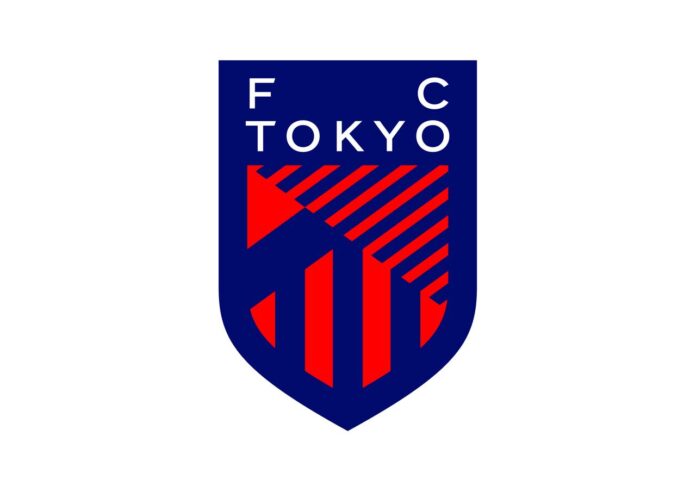We extend our sincere gratitude to Jiro Kitahara for opening the doors of FC Tokyo to us and providing valuable insights into the club’s strategies, challenges, and ambitions for the future. As both the Method Director and Head of International Sporting Strategy, Jiro plays a pivotal role in shaping the club’s philosophy and global outreach.
Leadership and Strategic Direction
At the helm of FC Tokyo’s football strategy is Jiro Kitahara, who holds dual responsibilities: as Method Director, he oversees the strategic management of the club’s football philosophy, while as Head of International Sporting Strategy, he leads efforts to globalize FC Tokyo’s presence. These roles ensure that FC Tokyo not only excels domestically but also expands its influence internationally.
“The key to our success lies in a clear and consistent football methodology,” Jiro explains. “By developing and refining our game model, we ensure that every player and coach understands their role within our system.”
The club’s challenge is divided into two core areas: football methodology and international sporting relations. The football methodology sector focuses on developing and updating the club’s game model, monitoring performance, and maintaining a structured philosophical framework. Meanwhile, the international strategy department is responsible for global collaborations, talent scouting, and fostering partnerships with foreign clubs.
Competitive Strategies in the J.League
To remain competitive in the J.League, FC Tokyo has implemented a three-pronged approach:
- Leveraging Tokyo’s Unique Advantages: With one of the world’s largest metropolitan populations, the club focuses on a strong academy system to ensure long-term sustainability and first-team development. Squad management is optimized for efficiency, balancing competitiveness with financial constraints.
- Investment in Youth Development: The club places significant emphasis on match experience and overseas exposure for young players, enhancing their growth through advanced coaching staff, modern training facilities, and structured development programs.
- Football Philosophy-Driven Approach: Scouting, training, and coaching at FC Tokyo align with a well-defined game model, ensuring consistency across all levels.
“Our focus is on sustainable success,” Jiro emphasizes. “By investing in our academy and ensuring a seamless transition for young talents into the first team, we create a long-term model of competitiveness.”
The Role of Tokyo in Club Identity
FC Tokyo benefits from strong governmental support, which aids in community engagement and educational initiatives. The club actively contributes to grassroots football by promoting educational programs and inspiring young athletes. This local involvement solidifies FC Tokyo’s identity as a pillar of the Tokyo sports scene.
“Tokyo is more than just our home—it’s an essential part of our identity,” says Jiro. “We strive to represent the city in everything we do, from our playing style to our engagement with the community.”
Global Partnerships and Talent Development
FC Tokyo has established partnerships with international clubs, including Sint-Truiden, Benfica, and Legia Warsaw. These collaborations serve multiple purposes:
- Generating transfer revenue by developing and exporting talent.
- Creating international pathways for young professional players.
- Facilitating coaching and scouting exchanges to enhance first team and academy growth.
Such global ties ensure that FC Tokyo remains at the forefront of football development, integrating European methodologies into its player education programs.
“Globalization is an important pillar for FC Tokyo,” Jiro states. “By strengthening our partnerships and creating pathways for our players, we are opening doors to new opportunities that will elevate the club.”
The J.League’s Global Standing
The J.League boasts a high level of technical ability and tactical diversity, historically influenced by Brazilian football philosophy. However, despite its strong organization and competitive balance, the league faces challenges in global brand awareness. Limited broadcasting revenue and fewer European connections restrict international exposure, but ongoing efforts to market the league and participate in global tournaments aim to change this perception.
“We have the quality to compete on the international stage,” Jiro says. “Now, it’s about increasing visibility and ensuring that the world recognizes what Japanese football has to offer.”
Overcoming Challenges and Embracing Opportunities
One of FC Tokyo’s primary challenges is maintaining squad consistency. Many of Japan’s top talents move to Europe, making it difficult to sustain a competitive roster. To counter this, the club focuses on increasing transfer revenue and reinvesting in top-quality signings while deepening its academy pool to ensure replacements are always available.
Looking ahead, FC Tokyo sees opportunities in aligning its season calendar with the European system (autumn-spring), which could improve player fitness avoiding summer’s game, attract European professional players and staff, and increase the league’s overall competitiveness. Clubs with strong European ties will likely benefit the most from this shift.
“A calendar shift would help us better integrate with the global football market,” Jiro notes. “It would allow our players to transition more smoothly to European leagues and enhance the overall competitiveness of Japanese football.”
The Future of FC Tokyo
FC Tokyo’s long-term ambition is to become the defining club of Japanese football, a team that represents the global image of Tokyo. By 2030, the club envisions itself as a consistent title contender in the J.League, a regular participant in the AFC Champions League, and a leading institution for player development, producing talents who reach both European leagues and the Japanese national team.
“Our goal is clear—we want FC Tokyo to be recognized as a powerhouse, both domestically and internationally,” Jiro states. “Through our structured philosophy, international engagement, and investment in young talent, we are building a future that will sustain long-term success.”
Conclusion
FC Tokyo is not just aiming for domestic success; it is striving to become a global football powerhouse. Through its structured football philosophy, strategic international partnerships, and deep investment in youth development, the club is positioning itself as a model of sustainability and competitiveness in Asia. With a clear vision and strong leadership from Jiro Kitahara, FC Tokyo is set to redefine its role in Japanese and international football over the coming decade.

